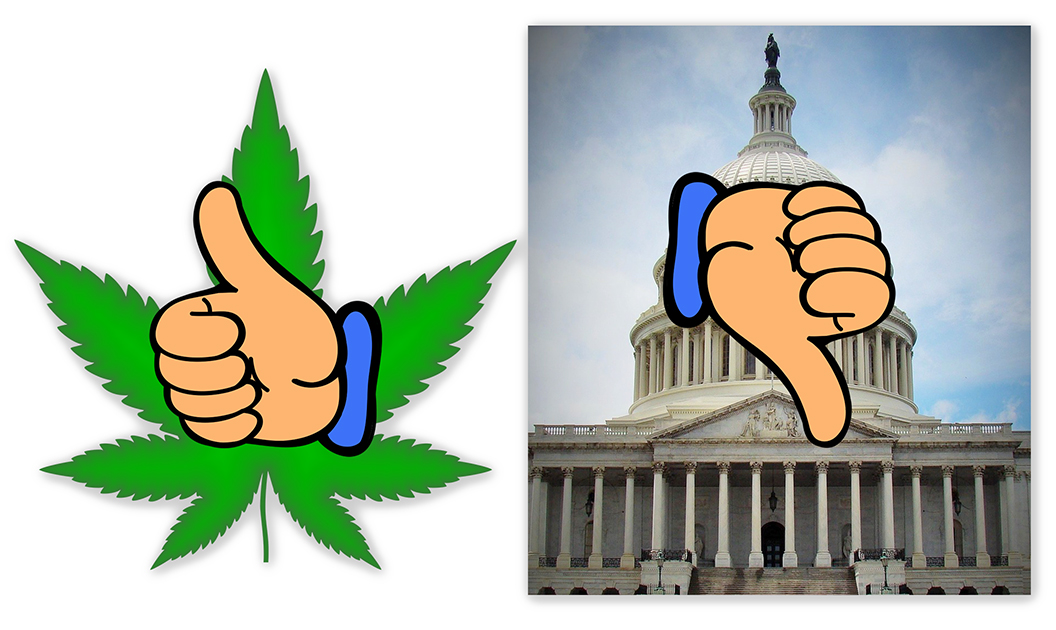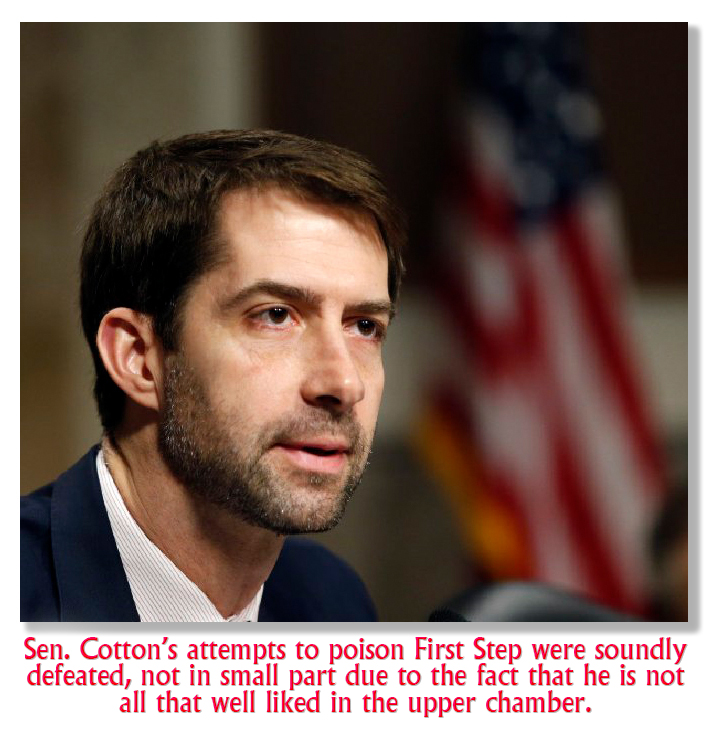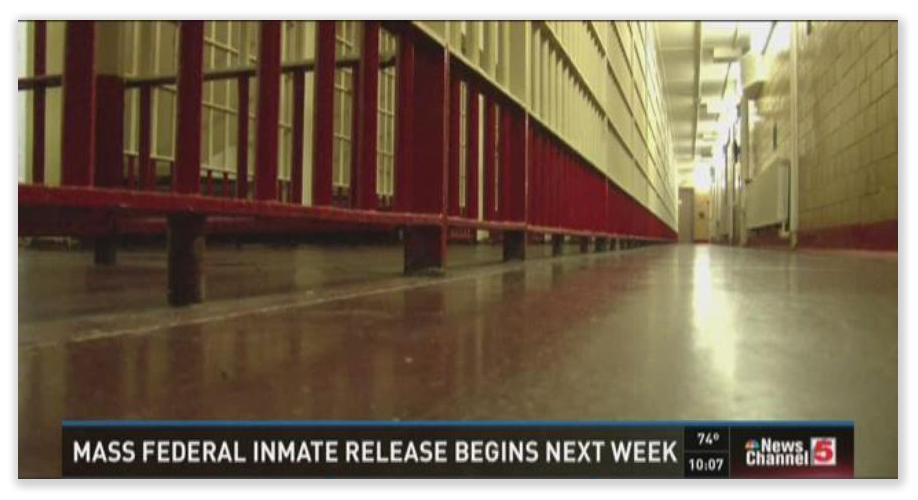We post news and comment on federal criminal justice issues, focused primarily on trial and post-conviction matters, legislative initiatives, and sentencing issues.

WHY NOTHING IS BEING DONE ON CRIMINAL JUSTICE REFORM
 President Joe Biden’s campaign platform included ending the federal death penalty and solitary confinement, decriminalizing marijuana, and using clemency to free federal inmates serving sentences for some nonviolent and drug crimes. “More than a year into the new administration,” Reason magazine reported last week, “few of those promises have been fulfilled.”
President Joe Biden’s campaign platform included ending the federal death penalty and solitary confinement, decriminalizing marijuana, and using clemency to free federal inmates serving sentences for some nonviolent and drug crimes. “More than a year into the new administration,” Reason magazine reported last week, “few of those promises have been fulfilled.”
More like zero. No clemencies. No bills passed. No retroactive changes to mandatory minimums. No EQUAL Act. Nothing.
Any hopes that might change were dampened after last week’s State of the Union speech, which included nothing of the criminal justice reforms that Biden promised during the campaign.
“Let’s come together to protect our communities, restore trust, and hold law enforcement accountable,” Biden said in the sole reference to reform in his speech. Biden drew bipartisan applause for his calls to fund, not defund, the police.
Biden promised to end private prisons, cash bail, mandatory-minimum sentencing, and the death penalty during his presidential campaign. Candidate Biden also said the United States could reduce its prison population by more than half. As The Marshall Project put it at the time, “Biden has… quietly, been elected on the most progressive criminal justice platform of any major party candidate in generations.”
 But Biden has discovered that mainstream voters largely do not love the progressive platform. Rising murder rates have made many Democrats hesitant to stray too close to any criminal justice reform. The Democrats’ research recently showed that some voters in battleground districts think the party is “focused on culture wars,” POLITICO reported. The Democrats fear that being soft on crime could cause Democrats to lose substantial ground to the GOP in this fall’s midterm elections.
But Biden has discovered that mainstream voters largely do not love the progressive platform. Rising murder rates have made many Democrats hesitant to stray too close to any criminal justice reform. The Democrats’ research recently showed that some voters in battleground districts think the party is “focused on culture wars,” POLITICO reported. The Democrats fear that being soft on crime could cause Democrats to lose substantial ground to the GOP in this fall’s midterm elections.
In fact, the perception among voters – even where the statistics show otherwise – is that crime is on the rise.
But, as Reason put it, “the administration’s effort to forget some of the more tangible reforms it promised is not a profile in courage.” The Biden campaign promised to broadly use clemency for some non-violent and drug crimes, but the White House has been less than clear on when that would happen. Many presidents wait until the final years of their terms to flex their clemency powers. “In the meantime, though,” Reason said, “there are still federal inmates serving sentences in understaffed, dangerous prisons for nonviolent drug offenses — something that Biden supposedly thinks is an outrage.”
Other parts of the federal criminal justice system are being neglected, too. The Sentencing Commission has lacked a quorum since halfway through Trump’s presidency. Thus far, Biden has resisted calls to appoint the four replacements needed. Part of Biden’s platform to “ensure humane prison conditions” included ending solitary confinement, with very limited exceptions. Last week, The Appeal reported a draft White House executive order leaked August would order federal inmates to be housed in the “least restrictive setting necessary.” But the proposed order reportedly outraged law enforcement groups, and the proposal quietly died.
 So how about the crown jewel, the EQUAL Act? Last week, the Attorney General and Deputy AGs Lisa O. Monaco and Vanita Gupta met with members of FAMM and families “who have been impacted by the federal criminal justice system.” A Dept of Justice news release said Associate AG Gupta noted DOJ’s support for the EQUAL Act, saying, “the current sentencing differential between crack and powder cocaine is not based in evidence and yet has caused significant harm in particular to communities of color. It’s past time to correct this.”
So how about the crown jewel, the EQUAL Act? Last week, the Attorney General and Deputy AGs Lisa O. Monaco and Vanita Gupta met with members of FAMM and families “who have been impacted by the federal criminal justice system.” A Dept of Justice news release said Associate AG Gupta noted DOJ’s support for the EQUAL Act, saying, “the current sentencing differential between crack and powder cocaine is not based in evidence and yet has caused significant harm in particular to communities of color. It’s past time to correct this.”
Sure it is. But what’s being done in the Senate? Ohio State University law professor Doug Berman wrote in his Sentencing Law and Policy blog that “every day matters: on average, every single workday, about 5 people — 4 whom are typically black and the other who is most likely Latino — are sentenced based on unjust crack sentencing rules in federal court… Nearly six months after the U.S. House overwhelmingly voted with majorities in both parties in pass a bill to equalize crack and powder penalties, this bipartisan bill remains stuck in neutral in the U.S. Senate.”
Reason, Criminal Justice Campaign Promises Absent From Biden’s State of the Union Speech (March 1, 2022)
Politico, Biden draws bipartisan applause for calls to ‘fund the police’ (March 1, 2022)
The Marshall Project, What Biden’s Win Means for the Future of Criminal Justice (November 8, 2020)
Brennen Center, Criminal Legal Reform One Year into the Biden Administration (January 24, 2022)
Letter to President Biden on Solitary Confinement (June 3, 2021)
The Appeal, Will Biden Step Up On Solitary Confinement? (February 28, 2022)
New York Times, Inside a Near Breakdown Between the White House and the Police (February 2, 2022)
Dept of Justice, Readout of Justice Department Leadership Meeting with FAMM (March 1, 2022)
Sentencing Law and Policy, Why is getting the EQUAL Act through the US Senate proving so challenging? (March 1, 2022)
– Thomas L. Root






















